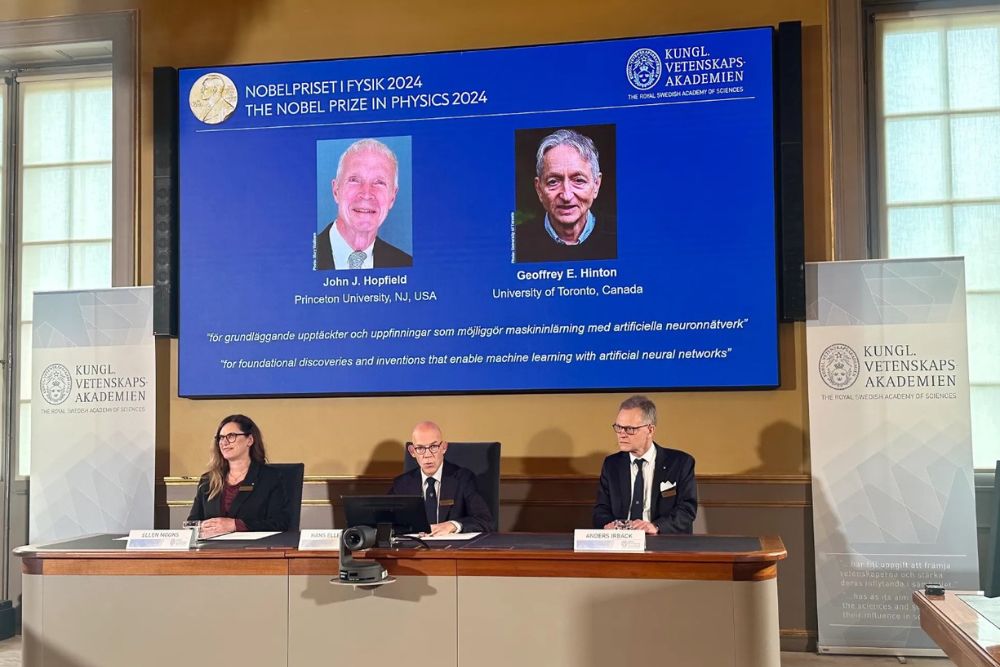
For the first time, the Nobel Prize in Physics has been awarded to researchers from the field of computer science, recognizing John Hopfield and Geoffrey Hinton for their pioneering contributions to Machine Learning and Artificial Intelligence (AI). Their groundbreaking work on the Hopfield Network and the Boltzmann Machine laid the foundation for modern Deep Learning techniques, such as image and pattern recognition, and have revolutionized both AI and physics.
In their statement of reasons, the Nobel Committee highlighted a significant breakthrough in astrophysics that underscores the fusion of AI and science. With significant contribution by Dr. Mirco Hünnefeld, founding director of the Lamarr Institute Prof. Dr. Katharina Morik and Lamarr-PI and Chair of the research area Physics Prof. Dr. Dr. Wolfgang Rhode as part of the IceCube Neutrino Observatory collaboration, convolutional neural networks (CNNs) and probabilistic models were used to visualize the Milky Way through neutrino data detection . This groundbreaking achievement, which was announced in a press conference by Madison University Wisconsin and TU Dortmund University in June 2023, represented a key milestone in the synergetic application of AI to astrophysics.
Nobel Prize in Physics: AI Research Recognized for Transformative Impact
While Hinton is often called the “Godfather of AI,” he has also raised concerns about the ethical implications of AI. He warns about the rapid pace of AI development, its potential for spreading misinformation, and the risks to jobs. At Lamarr, we recognize these challenges and are committed to Trustworthy AI, ensuring that AI systems are transparent, fair, and ethical. Hopfield and Hinton’s foundational research in AI has not only revolutionized fields like pattern recognition but also opened new possibilities in material science and astrophysics. The Lamarr Institute, whose research in part builds upon their innovations, is committed to tackling complex challenges in numerous application areas. The application of Machine Learning to high-energy neutrino observations from the IceCube Observatory hereby underscores the profound impact of AI on the understanding of the universe.
This Nobel Prize marks a historic moment, as AI research receives recognition for its profound impact on both technology and science, highlighting the transformative potential of Machine Learning across various research disciplines.
For more information, see also